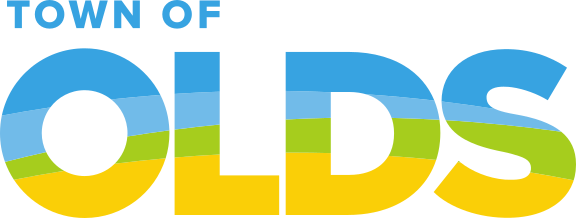The Town of Olds is shifting how it manages select green spaces and shrub beds by embracing naturalization—converting low-use or difficult-to-maintain areas into more natural, self-sustaining landscapes. This change reflects a shift toward responsible land use, and long-term cost management while continuing to prioritize safe, attractive public spaces.
Mowing in designated greenspaces will be paused to allow native grasses and vegetation to grow naturally. This change supports biodiversity, improves soil health, reduces greenhouse gas emissions, and creates better habitat for pollinators, birds, and other wildlife. Meanwhile, selected shrub beds will be transitioned into low-maintenance, pollinator-friendly areas by planting ground cover that supports bees, butterflies, and other important species.
“We’ve reached a point where we need to rethink how we manage some of our greenspaces,” said Guy Lapointe, Director of Community Services. “Naturalization gives us a smarter way to care for the spaces that need less attention, so we can focus our time and effort where it really counts.”
The plan includes two streams: shrub beds, which will retain existing shrubs and trees using pollinator-friendly ground cover to reduce maintenance and support biodiversity; and select greenspaces, where mowing will be paused to allow native grasses and wildflowers to flourish. These areas were selected because they are underused, steep, wet, hidden, or otherwise challenging to maintain. The Town anticipates naturalizing approximately 23 acres saving an estimated 13 working days of staff time annually.
“This is about more than changing how we maintain green spaces,” said Mayor Judy Dahl. “These kinds of decisions help us grow responsibly and care for our environment with horticultural expertise and staying true to the values of stewardship and long-term planning.”
What Residents Can Expect
The Town is committed to managing expectations through transparency and ongoing communication. Residents may notice bare soil, uneven growth, or patchy vegetation in the early years. Naturalized areas will be monitored and maintained to control noxious weeds, manage safety, and ensure long-term success.
“This is a smart and necessary step that Town of Olds is taking,” said Dr. Ken Fry, Horticulture Instructor at Olds College. “Naturalization is a proven land management strategy backed by science. It allows for smarter allocation of resources and promotes healthier, more diverse ecosystems over time.”
Safety and Monitoring
The Town is working closely with the Olds Fire Department and Parks staff to monitor naturalized areas for safety, sightlines, and vegetation concerns. Areas near playgrounds, sports fields, and high-traffic zones have been excluded from the program.
Collaborating with Community
Residents are encouraged to:
- Avoid walking or playing in newly seeded areas
- Report noxious weeds or safety concerns
- Be patient as these spaces develop over several seasons
“We’re inviting residents to help us reimagine what care and stewardship can look like” added Lapointe. “The benefits—environmental, financial, and social—are worth the wait!”
Naturalization supports Council’s goals of environmental sustainability, cost-effective service delivery, and a high quality of life for residents.
For more information, resources, a full FAQ visit www.olds.ca/naturalization
Media Contact:
Jillian Toellner, Supervisor – Communications & Engagement
communications@olds.ca
Direct: 403-507-4857
